An Imperfect Guide to Imperfect Reproducibility
Gabriel Becker
Twitter: @groundwalkergmb, Github:@gmbecker
Intro
May Institute For Computational Proteomics 2019, Northeastern University
Who I Am
Gabe Becker
Twitter: @groundwalkergmb, GitHub: gmbecker
May Institute For Computational Proteomics 2019, Northeastern University
What I do
- Research reproducibility and related issues
- Contribute^ to the R language itself
^ I collaborate with, but am not a member of, the R-core development team.
May Institute For Computational Proteomics 2019, Northeastern University
Who I Was
Formerly Scientist at Genentech Research
Some content in this talk was developed (by me) while at, and is copyright Genentech, Inc. Used with permission.
May Institute For Computational Proteomics 2019, Northeastern University
What I'll Be Talking About
- Theory - mental models
- Reproducibility - what it does and doesn't give us
- Generalizing Reproducibility
- Practice - what you can do now to improve your work
May Institute For Computational Proteomics 2019, Northeastern University
I Wish Reproducibility Didn't Matter
May Institute For Computational Proteomics 2019, Northeastern University
So Many Things Would Already Be Solved
May Institute For Computational Proteomics 2019, Northeastern University
Energy (Cold Fusion)



May Institute For Computational Proteomics 2019, Northeastern University
Personalized Cancer Treatment
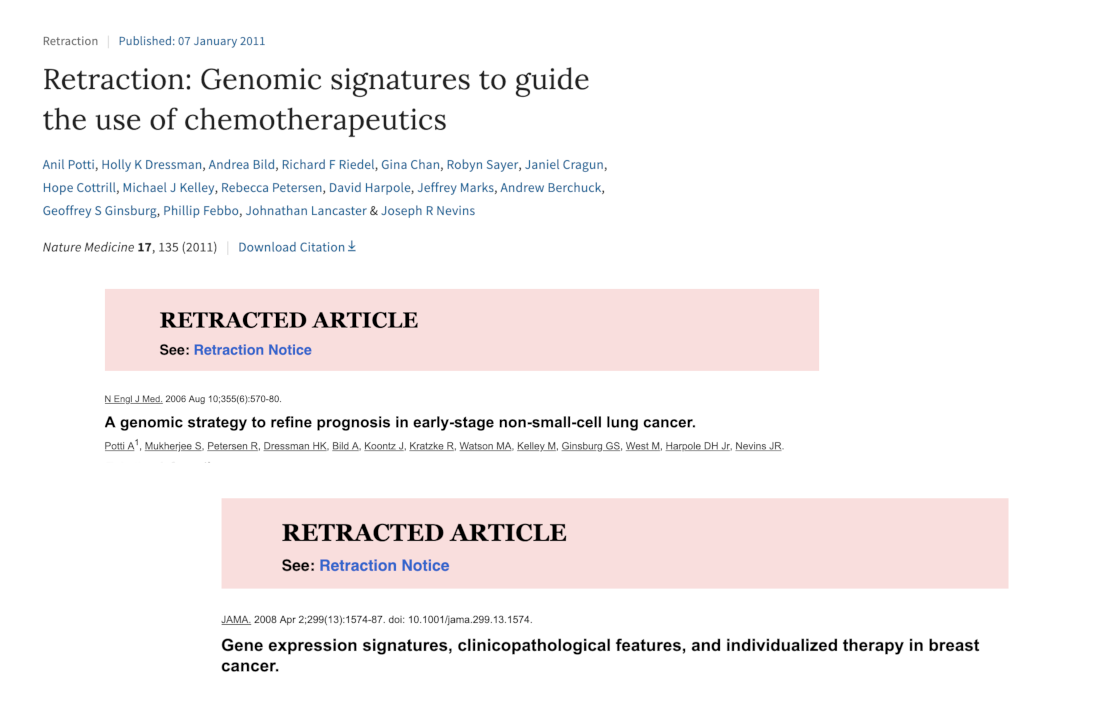
May Institute For Computational Proteomics 2019, Northeastern University
Economics
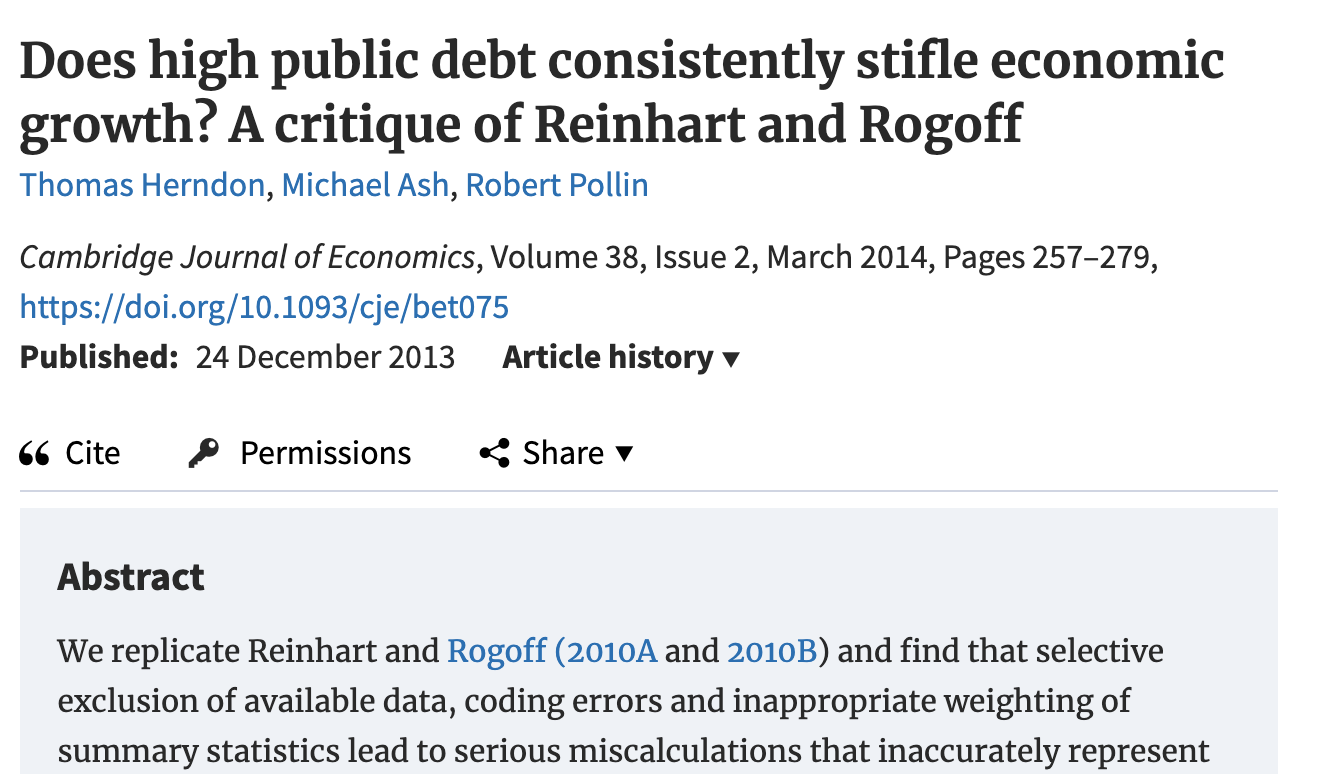

May Institute For Computational Proteomics 2019, Northeastern University
Aliens
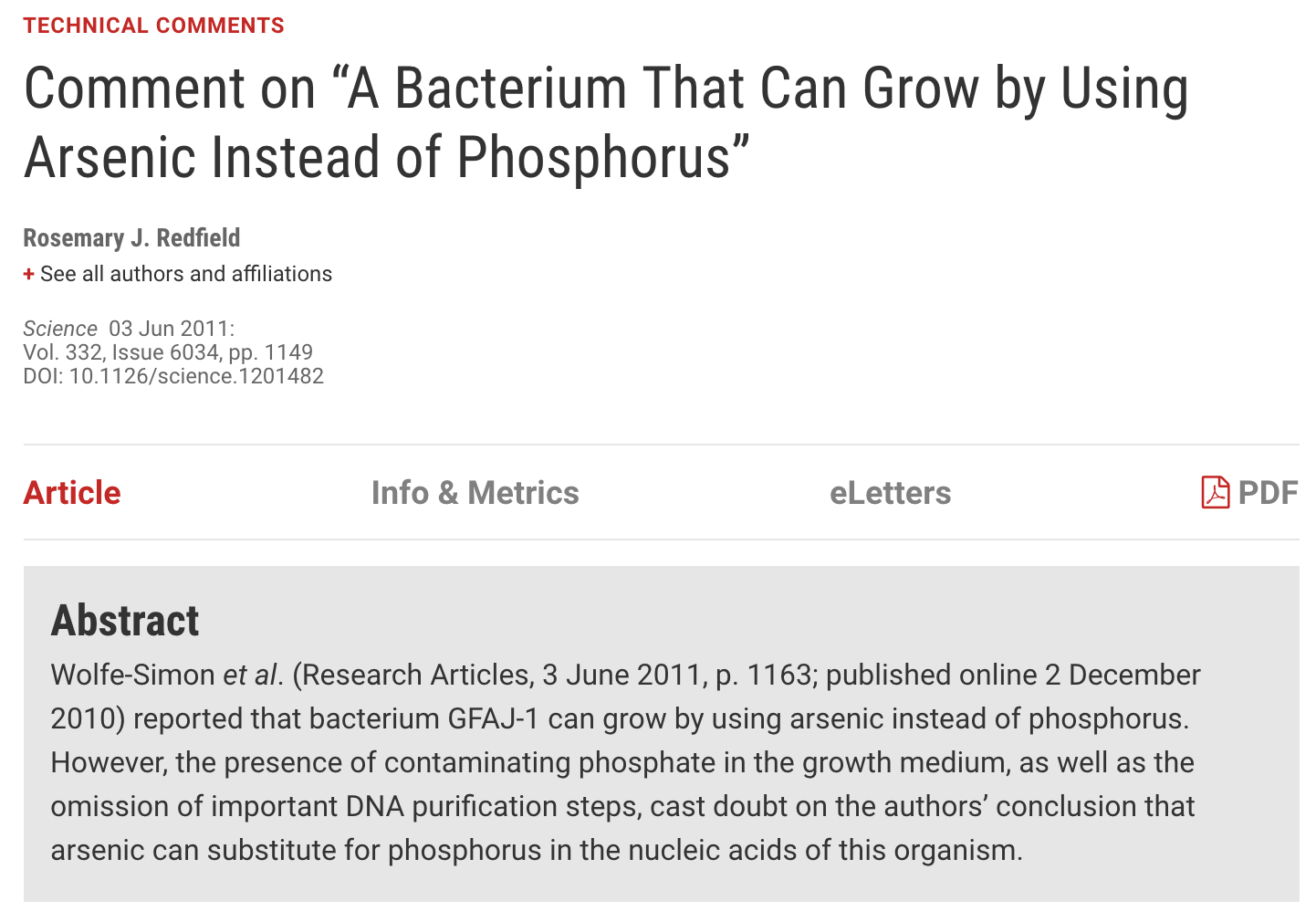
May Institute For Computational Proteomics 2019, Northeastern University
But We're Stuck In The Real World
And none of those claims were true^
^To the best of our current knowledge
May Institute For Computational Proteomics 2019, Northeastern University
(Computational) Reproducibility Is Not The Point
May Institute For Computational Proteomics 2019, Northeastern University
Knowledge Management
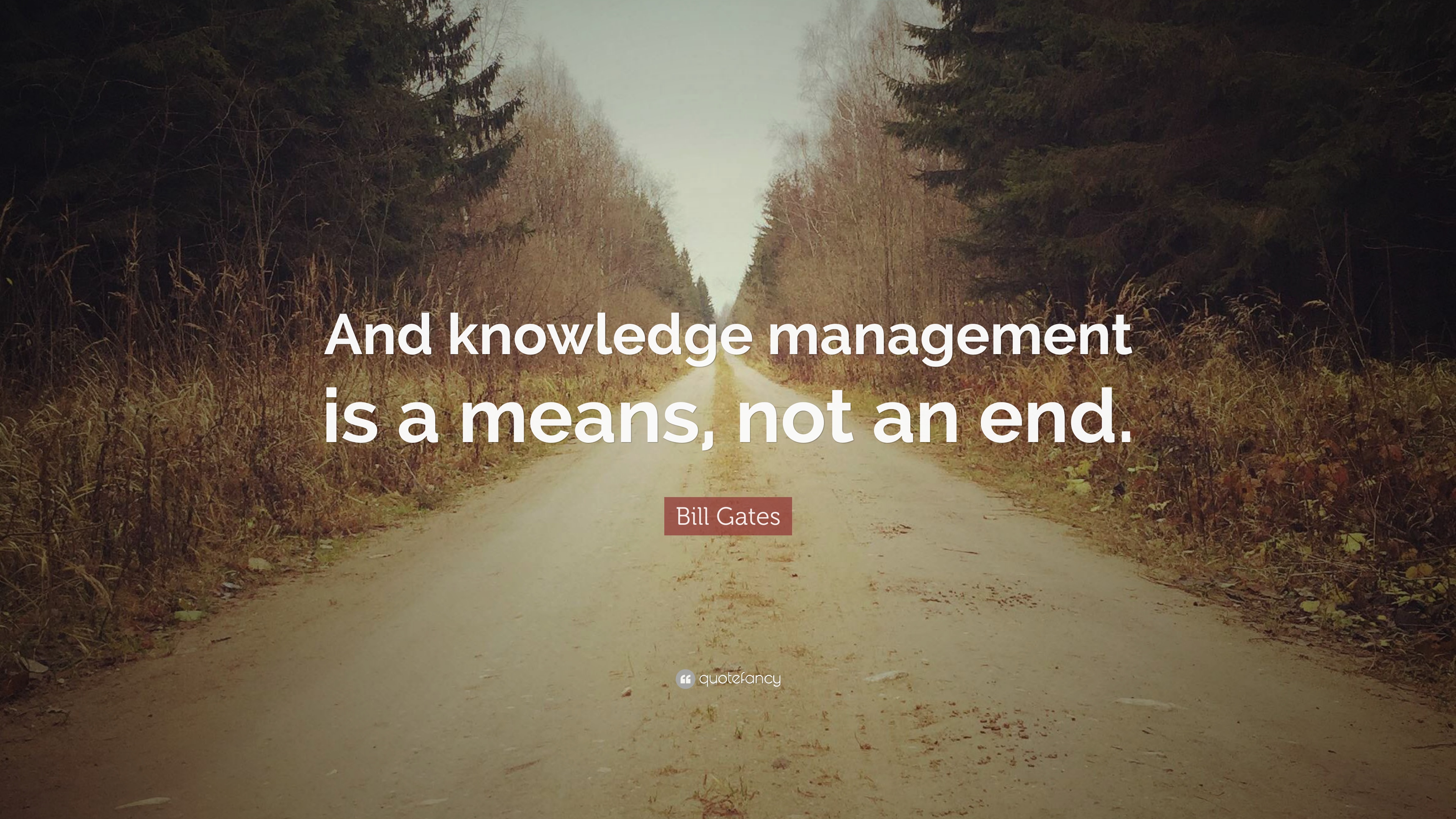
May Institute For Computational Proteomics 2019, Northeastern University
Reproducibility
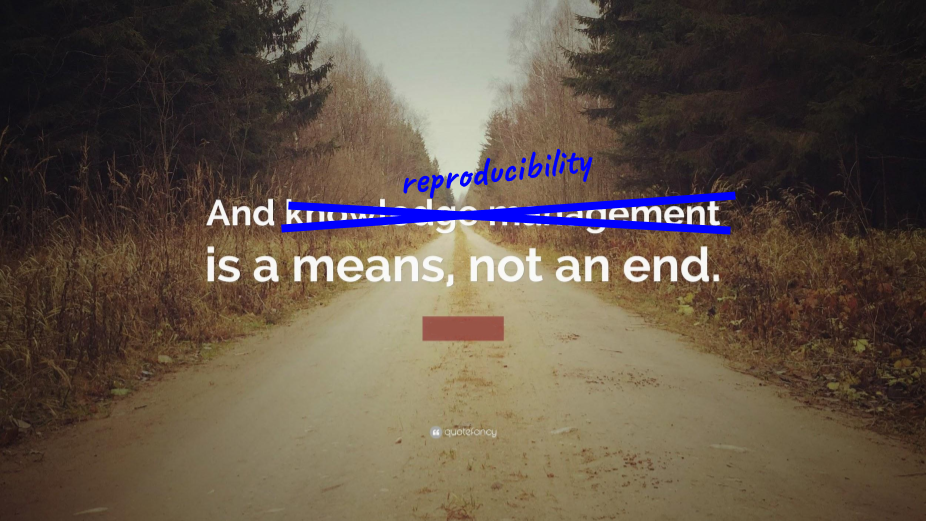
May Institute For Computational Proteomics 2019, Northeastern University
So To Recap
- The world would be better if all results were reproducible
- I don't really care if your results are reproducible
May Institute For Computational Proteomics 2019, Northeastern University
Seem Like A Contradiction?

May Institute For Computational Proteomics 2019, Northeastern University
What Do We Really Want?
May Institute For Computational Proteomics 2019, Northeastern University
Results Are No Use To Us If They're Not Useful

May Institute For Computational Proteomics 2019, Northeastern University
But How Does Reproducting a Result Make It Useful?

May Institute For Computational Proteomics 2019, Northeastern University
We Want
Results we can understand and feel confident using (Gavish)
- Incorporating them into our overall understanding
- Extending or directly utilizing them in our own work
- Talking about them at dinner parties
1 Gavish and Donoho, A Universal Identifier for Computational Results, Procedia Computer Science 4, 2011
May Institute For Computational Proteomics 2019, Northeastern University
Trust, Verification and Guarantees
May Institute For Computational Proteomics 2019, Northeastern University
Ways We Can Trust Results
- Trust in Reporting - result is accurately reported
- Trust in Implementation - analysis code successfully implements chosen methods
- Statistical Trust - data and methods are (still) appropriate
- Scientific Trust - result convincingly supports claim(s) about underlying systems or truths
May Institute For Computational Proteomics 2019, Northeastern University
Reproducibility As A Trust Scale

Source: Gabriel Becker, copyright Genentech Inc.
May Institute For Computational Proteomics 2019, Northeastern University
What Does Strict Reproduction Prove?
It confirms^ the original analyst(s)
- Got the result they say they got
- By applying the code they provided
- To the input data they identified
- In the environment specified
And ensures you have the artifact itself
^ technically it does not confirm these in the deductive sense, rather proves them in the "beyond a reasonable doubt" sense.
May Institute For Computational Proteomics 2019, Northeastern University
A Brief Thought Experiment
May Institute For Computational Proteomics 2019, Northeastern University
Imagine an Independent, Trusted System Which
- Accepts code and data, and environment
- Runs the code
- Saves and publishes results and associates them with code and env
- Deletes the data (if necessary)
May Institute For Computational Proteomics 2019, Northeastern University
This Would Provide Guarantees
Very similar (at least) to those gained by manual, strict reproduction,
without requiring us to actually recreate the result at an arbitrary later date.
May Institute For Computational Proteomics 2019, Northeastern University
Reproducibility Isn't Everything - A Case Study
May Institute For Computational Proteomics 2019, Northeastern University
DESeq Paper

May Institute For Computational Proteomics 2019, Northeastern University
It's Reproducible!
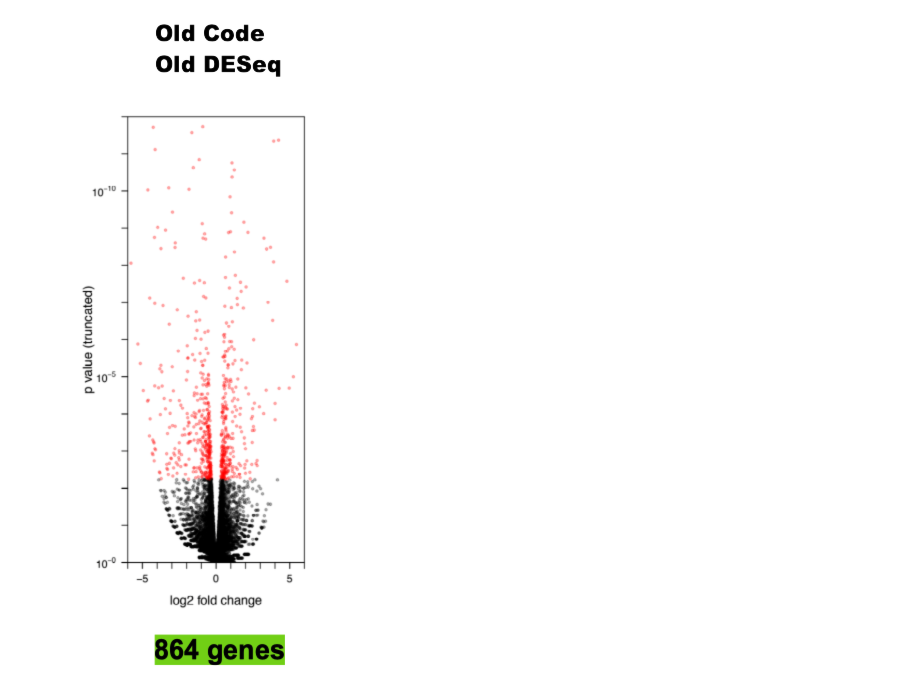
Source: Gabriel Becker, copyright Genentech Inc.
May Institute For Computational Proteomics 2019, Northeastern University
Not The Whole Story
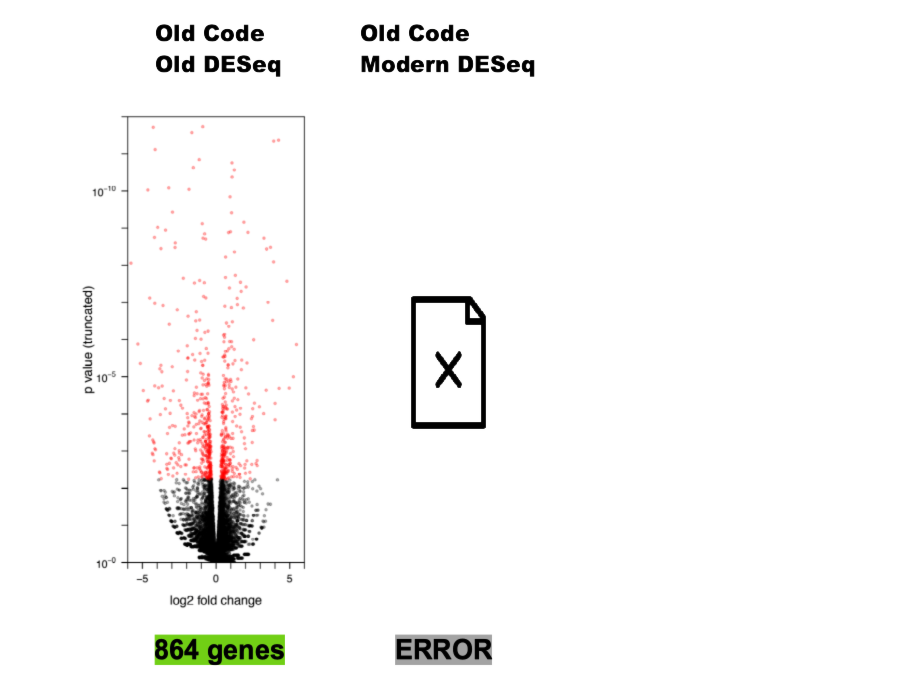
Source: Gabriel Becker, copyright Genentech Inc.
May Institute For Computational Proteomics 2019, Northeastern University
Really Not The Whole Story
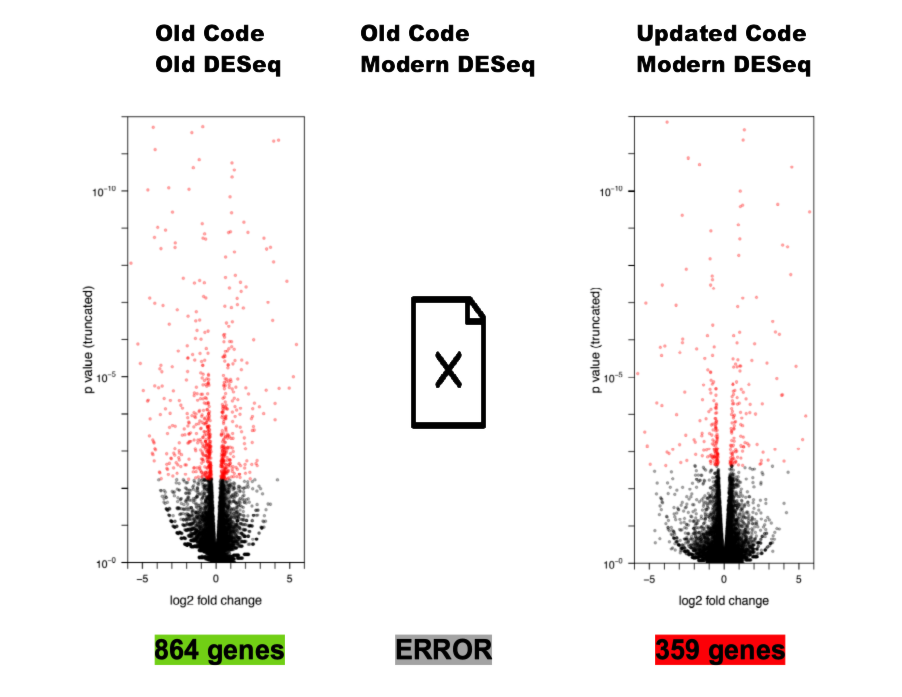
Source: Gabriel Becker, copyright Genentech Inc.
May Institute For Computational Proteomics 2019, Northeastern University

May Institute For Computational Proteomics 2019, Northeastern University
Generalized Reproducibility
May Institute For Computational Proteomics 2019, Northeastern University
Reproducibility is great, but by itself it is neither as necessary nor as sufficient as many seem to think.
– Me (and, like, other smart people too probably)
May Institute For Computational Proteomics 2019, Northeastern University
Topics In Generalized Reproducibility
- Comparability
- Currency
- Completeness
- Provenance
May Institute For Computational Proteomics 2019, Northeastern University
Comparability
May Institute For Computational Proteomics 2019, Northeastern University
Individual "Data Science" Workflow
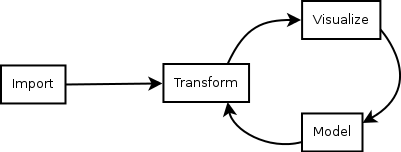
credit: Wickham
May Institute For Computational Proteomics 2019, Northeastern University
Collaboration Is Core
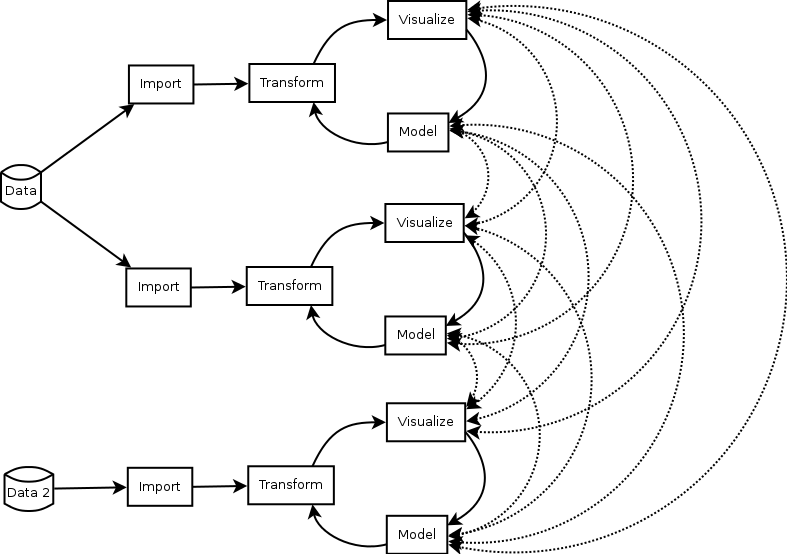
Source: Gabriel Becker, copyright Genentech Inc.
May Institute For Computational Proteomics 2019, Northeastern University
Different Versions
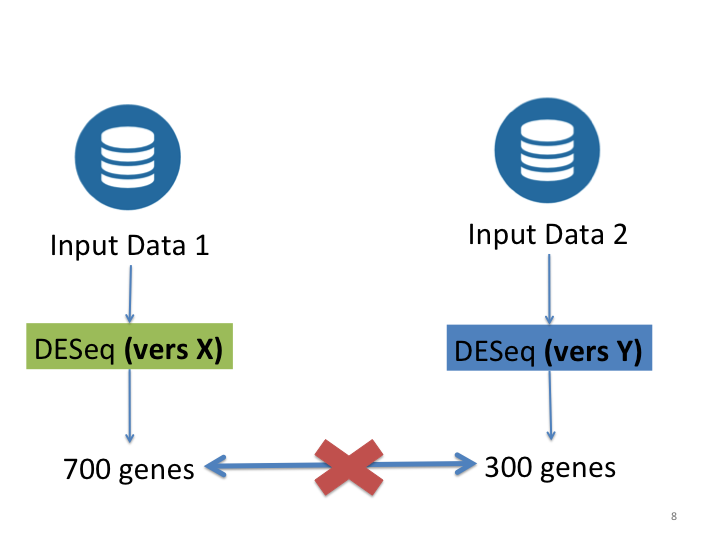
Source: Gabriel Becker, copyright Genentech Inc.
May Institute For Computational Proteomics 2019, Northeastern University
Same Versions
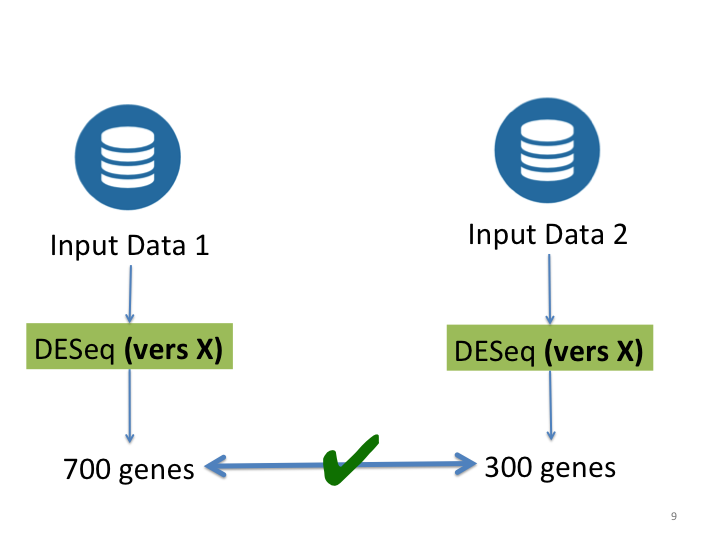
Source: Gabriel Becker, copyright Genentech Inc.
May Institute For Computational Proteomics 2019, Northeastern University
Currency
May Institute For Computational Proteomics 2019, Northeastern University
Recall

Source: Gabriel Becker, copyright Genentech Inc.
May Institute For Computational Proteomics 2019, Northeastern University
Bleeding Edge Methods
- Called this for a reason
- Continue to be refined
- Likely won't stay state of the art
- May not even remain valid
May Institute For Computational Proteomics 2019, Northeastern University
No Hard-And-Fast Rule, But Generally
- Modern versions take precedence
- skeptical of genes in the 864 but not the 359
- Modern methods take precedence^
^ By how much depends on why the old method fell out of favor
May Institute For Computational Proteomics 2019, Northeastern University
Note
The Currency concern is very real in Bioinformatics, Deep Learning, and other fast moving settings. Its not really a concern when using a "classical" method (GLMs, Random Forests, etc).
May Institute For Computational Proteomics 2019, Northeastern University
Completeness
May Institute For Computational Proteomics 2019, Northeastern University
Literate Statistical Practice
[The resulting document] should describe results and lessons learned … as well as a means to reproduce all steps, even those not used in a concise reconstruction, which were taken in the analysis.
– Rossini, Literate Statistical Practice (emphasis mine)
May Institute For Computational Proteomics 2019, Northeastern University
Translation

May Institute For Computational Proteomics 2019, Northeastern University
Provenance
May Institute For Computational Proteomics 2019, Northeastern University
Provenance
the source or origin of an object; its history and pedigree; a record of the ultimate derivation and passage of an item through its various owners
– Oxford English Dictionary
May Institute For Computational Proteomics 2019, Northeastern University
Knowing a Result's Provenance Can Help Us
- Gain insights into the reasoning used to create it,
- verify acceptable procedures and methods were used, and
- know how to reproduce it.
Paraphrase of Friere et al. in Provenance for Computational Tasks: A Survey, Computing in Science & Engineering. 2008
May Institute For Computational Proteomics 2019, Northeastern University
Result Provenance Includes Input Data Provenance

May Institute For Computational Proteomics 2019, Northeastern University
Reproducibility In Practice
May Institute For Computational Proteomics 2019, Northeastern University
In theory there is no difference between theory and practice; in practice there is.
– Unattributed
May Institute For Computational Proteomics 2019, Northeastern University
A "Slightly Out-of-Order" Reproduction Process
May Institute For Computational Proteomics 2019, Northeastern University
0. No Way To Get/Recreate Code and Data?

May Institute For Computational Proteomics 2019, Northeastern University
1. Works With Modern SW Versions

May Institute For Computational Proteomics 2019, Northeastern University
2. Try To Recreate Original Environment

May Institute For Computational Proteomics 2019, Northeastern University
3. Worked In 'Original' Env, We're Good!

May Institute For Computational Proteomics 2019, Northeastern University
4. But Modern Results Disagree?

May Institute For Computational Proteomics 2019, Northeastern University
5. What Now?
We can
- Take the modern results and move forward using them
- Apply other methods to look for corroboration
- Throw up our hands and switch to a field that uses established classical methods
May Institute For Computational Proteomics 2019, Northeastern University
Things You Can Do Now
May Institute For Computational Proteomics 2019, Northeastern University
Script

May Institute For Computational Proteomics 2019, Northeastern University
Scripted Analyses
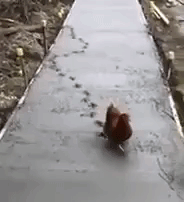
May Institute For Computational Proteomics 2019, Northeastern University
Manual Steps

May Institute For Computational Proteomics 2019, Northeastern University
Which Would You Rather Be Tested On?
- How the chicken crossed the road, or
- How many licks it took
May Institute For Computational Proteomics 2019, Northeastern University
Versions and File Naming
May Institute For Computational Proteomics 2019, Northeastern University
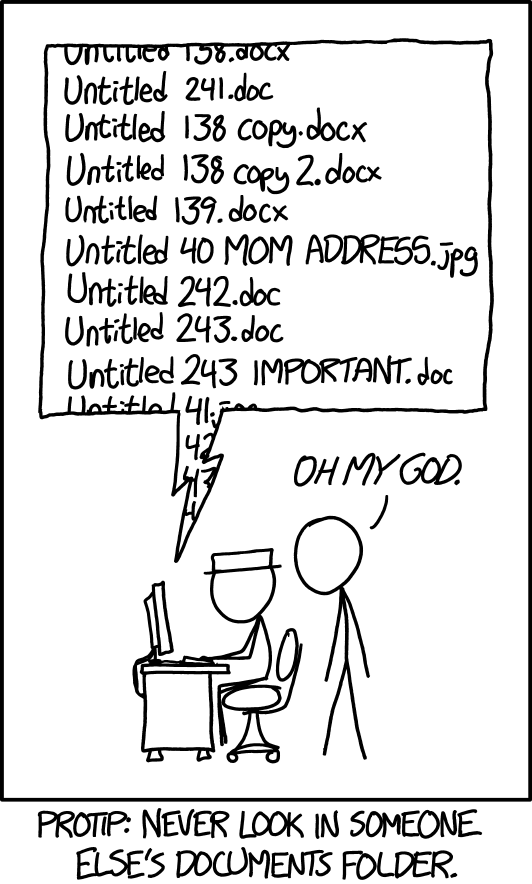
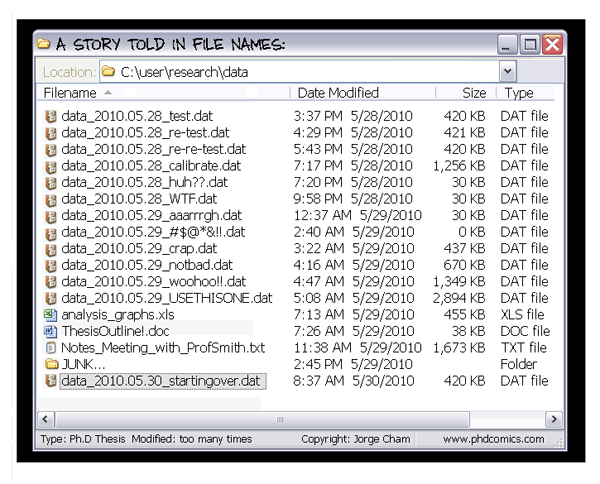
May Institute For Computational Proteomics 2019, Northeastern University
Avoid Encoding Metadata Solely In Filenames
- Version
thesis_final_revised_final_v2.Rmd
- Species/Gene/etc
mydata_BRAF_mut_only.dat
- Timestamp
mydata_as_of_2018_03_03.dat
May Institute For Computational Proteomics 2019, Northeastern University
Version Control

May Institute For Computational Proteomics 2019, Northeastern University
Literate Analyses
May Institute For Computational Proteomics 2019, Northeastern University
Use rmarkdown, knitr, or Sweave
This gets trust in reporting taken care of^ right away, and its super easy.
^absent actual misconduct, ie editing output files manually
May Institute For Computational Proteomics 2019, Northeastern University
Want to Use Jupytr/Rmarkdown Notebooks?
You must go watch or read Joel Grus' fantastic talk first
Watch: https://www.youtube.com/watch?v=7jiPeIFXb6U
Read: https://docs.google.com/presentation/d/1n2RlMdmv1p25Xy5thJUhkKGvjtV-dkAIsUXP-AL4ffI/
May Institute For Computational Proteomics 2019, Northeastern University
3 Rules If You Still Want To Use Notebooks
- Always run them start to finish before publication
- Never fully trust output in a notebook that wasn't run start to finish
- Always. Run. Them. Start. To. Finish. Before. Publishing.
May Institute For Computational Proteomics 2019, Northeastern University
Sharing
May Institute For Computational Proteomics 2019, Northeastern University
Current State

May Institute For Computational Proteomics 2019, Northeastern University
Current State
Authors for only ~ 44% (36%, 50%) of papers in Science shared both code and data

May Institute For Computational Proteomics 2019, Northeastern University
Share Your Code!
- If it's right no one cares how ugly it is
- If it's wrong, readers deserve to know
- And you do, too
May Institute For Computational Proteomics 2019, Northeastern University
Share Your Data (If Ethically Allowable)
When to share data is a tricky question.
But answers of "never" and "only once its obsolete/irrelevant" make you the villain of the piece.
May Institute For Computational Proteomics 2019, Northeastern University
Publish Science
As if you, personally, will need to understand, evaluate, use, and extend your result in 5 years, working only from published materials, having lost all personal materials.
May Institute For Computational Proteomics 2019, Northeastern University
Environment Recreation
May Institute For Computational Proteomics 2019, Northeastern University
Environment Recreation
Crucial for both multi-analyst collaboration and for strict reproduction
Remember to think about currency
May Institute For Computational Proteomics 2019, Northeastern University
Recreating/Distributing R Package Libraries
- switchr
- packrat
- MRAN snapshots
May Institute For Computational Proteomics 2019, Northeastern University
Docker For Reproducibility
May Institute For Computational Proteomics 2019, Northeastern University
Its Easy
- Boettiger and Eddelbuettel, An Introduction to Rocker: Docker Containers for R, The R Journal, 2017
- See Also: Bioconductor AMIs http://bioconductor.org/help/bioconductor-cloud-ami/
May Institute For Computational Proteomics 2019, Northeastern University
Confession

May Institute For Computational Proteomics 2019, Northeastern University
mybinder.org
Check out http://mybinder.org
- Makes your code runnable by others
- Uses docker
- Careful of changing dep version in images across time
May Institute For Computational Proteomics 2019, Northeastern University
Provenance-lite
May Institute For Computational Proteomics 2019, Northeastern University
Aspire To
- Know where your data came from
- Pass that information along with you results (and code)
(Even if imperfectly)
May Institute For Computational Proteomics 2019, Northeastern University
Publishing Results
May Institute For Computational Proteomics 2019, Northeastern University
What To Include
- Code (+ detailed description of any manual steps)
- Data (if you can)
- Data Provenance (if you have it)
- Version/environment info
May Institute For Computational Proteomics 2019, Northeastern University
Consider Open Access When You Can
Not a simple issue, but ask yourself how can a result be useful to people who can't even read about it?
May Institute For Computational Proteomics 2019, Northeastern University
Wrap-up and Conclusions
May Institute For Computational Proteomics 2019, Northeastern University

May Institute For Computational Proteomics 2019, Northeastern University
Think About What you Actually Want
And whether/how you can
- Get it
- Provide it to your readers
May Institute For Computational Proteomics 2019, Northeastern University
Reproducibility is NOT Valueless
But it is most usefully viewed within a larger, more nuanced context.
May Institute For Computational Proteomics 2019, Northeastern University
Share Your Code and Data (If Possible)
And don't be assholes to others who do the same. Even when you find problems in it.
May Institute For Computational Proteomics 2019, Northeastern University
Publish Science
You'd be able to trust if it came out of a lab you don't know.
May Institute For Computational Proteomics 2019, Northeastern University
Selected (and Incomplete) Further Readings
May Institute For Computational Proteomics 2019, Northeastern University
Compendiums
Gentleman and Temple Lang, Statistical Analyses and Reproducible Research, Bioconductor Working Papers, 2014
Marwick, Boettiger and Mullen, Packaging Data Analytical Work Reproducibly Using R (and Friends), The American Statistician, 2018
May Institute For Computational Proteomics 2019, Northeastern University
FAIR data
Wilkinson et al., The FAIR Guiding Principles for scientific data management and stewardship, Scientific Data, 2016
https://www.force11.org/group/fairgroup/fairprinciples
Dunning, de Smaele and Böhmer, Are the FAIR Data Principles fair? International Journal of Digital Curation, 2017
May Institute For Computational Proteomics 2019, Northeastern University
Case Studies and Attempts
Marwick, Computational Reproducibility in Archaeological Research: Basic Principles and a Case Study of Their Implementation, Journal of Archaeological Method and Theory, 2016
FitzJohn, Pennell, Zanne and Cornwell, Reproducible research is still a challenge, ROpenSci Blog, 2014 https://ropensci.org/blog/2014/06/09/reproducibility/
ROpenSci, Reproducibility In Science, http://ropensci.github.io/reproducibility-guide/
May Institute For Computational Proteomics 2019, Northeastern University
Cultural Challenges/Barriers to Reproducibilty
Basically everything Victoria Stodden has ever published.
Seriously, just go read it (at least the abstracts)
May Institute For Computational Proteomics 2019, Northeastern University
Provenance(ish) In R
Becker, Moore and Lawrence, trackr: A Framework for Enhancing Discoverability and Reproducibility of Data Visualizations and Other Artifacts in R, Journal of Computational and Graphical Statistics, 2019
Biecek and Kosiński, archivist: An R Package for Managing, Recording and Restoring Data Analysis Results, Journal of Statistical Software, 2017
May Institute For Computational Proteomics 2019, Northeastern University
Reproducible Pipelines in R
Landau, The drake R package: a pipeline toolkit for reproducibility and high-performance computing. The Journal of Open Source Software, 2018
May Institute For Computational Proteomics 2019, Northeastern University